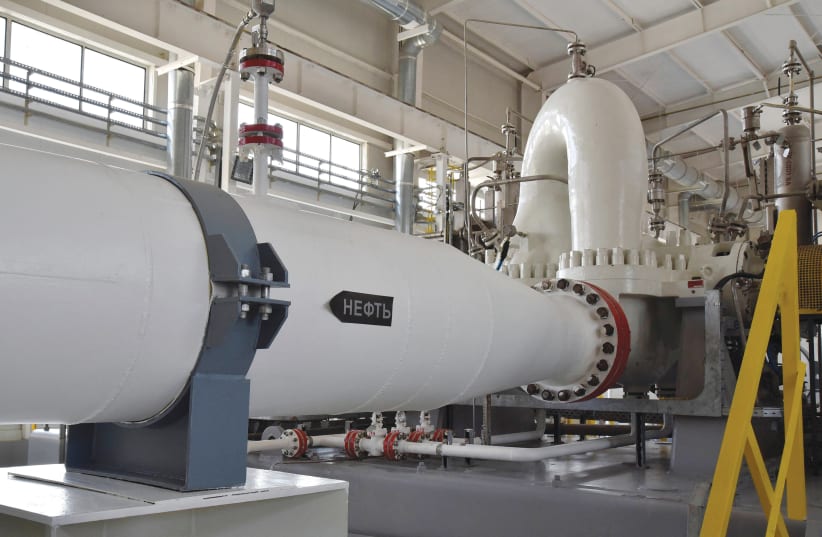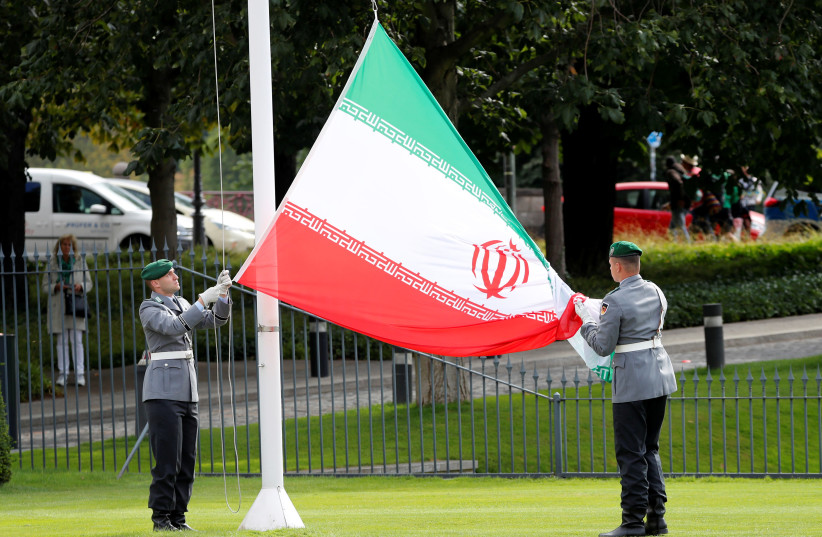The chief economist for the partially state-owned bank LBBW in the southwestern German state of Baden-Württemberg announced that Germany is engaged in secret talks with the Islamic Republic of Iran to buy Iranian oil, The Jerusalem Post can first reveal.
“Intensive talks are already being held behind the scenes with Venezuela, Iran or Algeria to cover Germany's oil and gasoline needs,” said Moritz Kraemer, the chief economist of the Landesbank Baden-Württemberg (LBBW). The comment by Kraemer was made in the context of how Germany plans to cover its energy needs in light of the country’s efforts to wean itself off Russian gas dependency.Bernd Wagner, a spokesman for LBBW, told the Post that “as a matter of principle, LBBW does not conduct any Iran-related business.”
When asked about Kraemer’s statement about secret talks with Iran’s regime, Wagner said “There seems to be a misunderstanding. The chief economist is talking about the national economy, not about LBBW's business. We have a very clear distinction here.”
Kraemer's comment was published on the LBBW website.
It is unclear how Germany would buy gas from Iran at this time because of US sanctions on Iran’s energy sector.
The German government is probably hedging its bets that the world powers will reach a nuclear deal with the theocratic state in Iran. The atomic accord would lift sanctions on Iran’s energy sector.
Israel vehemently opposes the Joint Comprehensive Plan of Action (JCPOA), the formal name for the Iran nuclear deal, because it imposes merely temporary restrictions on Iran’s construction of a nuclear weapon. The agreement would also pump hundreds of billions of dollars into the coffers of Iran’s regime. Israel argues the money could be used to fund terrorism.
What is the reaction to a potential deal?
Rabbi Abraham Cooper, the associate dean for the LA-based Simon Wiesenthal Center, told the Post that “if it is accurate that they are having secret talks, there is a reason they are secret.
"What is not secret: the Iranian threat that they just published in Hebrew that they have a hypersonic missile to hit Israel. What is not secret: serial holocaust denial by the Iranian regime.”
Cooper said “Germany never bothers to protest” against the Iranian regime’s repeated denial of the Holocaust.
Cooper said “Iran and Venezuela are two of the worst human rights abusers on the planet.”
Cooper, a tough critic of German-Iran relations, said Germany "can get plenty of gas from the Israelis and the Greeks. Germany has an obligation to its citizens to make sure they do not freeze.
"They should be able to address their [energy] problems with the Saudis or Emirates without going to Iranians and Venezuelans.”
Rabbi Abraham Cooper
The German-Iranian dissident Sheina Vojoudi told the Post that “if Germany wants to continue supporting the Iranian people who are getting shot and killed in the streets of Iran, as the German Chancellor Olaf Scholz expressed ‘we must take action when human rights are violated… we are witnessing what is happening on the streets… But words alone are not enough in the face of this brutality.’ Germany should not buy Iranian oil and gas.”
Vojoudi, a spokeswoman for the Senate of the National Iranian Congress, added that “if Germany proceeds to buy our stolen oil from the Islamic Republic, turns a blind eye to the bloodshed of the Iranian children murdered by this regime and makes deals with the murderous regime in Iran, it means that Germany is buying the blood of the Iranian youth and children.”
The IRGC is deeply involved in Iran’s energy sector and profits from the sale of Iranian oil and gas. Kazem Moussavi, the spokesman for the Green Party of Iran in exile who lives in Germany, advocates that Germany pull the plug on its economic and political relations with Tehran.
He also called for Germany to sanction the clerical’s regime Supreme Ali Khamenei and the regime’s Ebrahim Raisi. Vojoudi and Moussavi are demanding that Germany independently punish Iran’s regime for its alleged murder of the 22-year-old Mahsa Amini in the custody of the morality police
Monday Today marks the 60th day of continuous protests against the theocratic Iranian state over the death Amini.
The regime has murdered at least 326 people in its intense crackdown, including 43 children, according to the Norway-based group Iran Human Rights. The Post sent press queries on Monday evening to Germany's ambassador to Israel, Steffen Seibert.
Germany has remained Iran's most important EU trade partner. In 2018, the Post reported that the German engineering company Krempl in Baden-Württemberg sold material to Iranian businessmen in Tehran for chemical missiles. Syria's regime used Iranian chemical rockets to poison Syrian civilians, including children.
The regional paper Südkurier reported banks such as Volksbank Konstanz and Volksbank Schwarzwald-Donau-Neckar from Tuttlingen in Baden-Württemberg are conducting financial transactions for the Islamic Republic.

